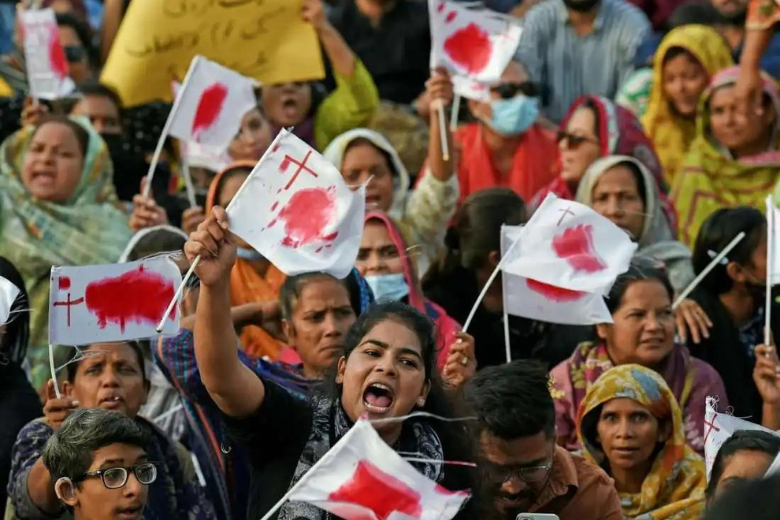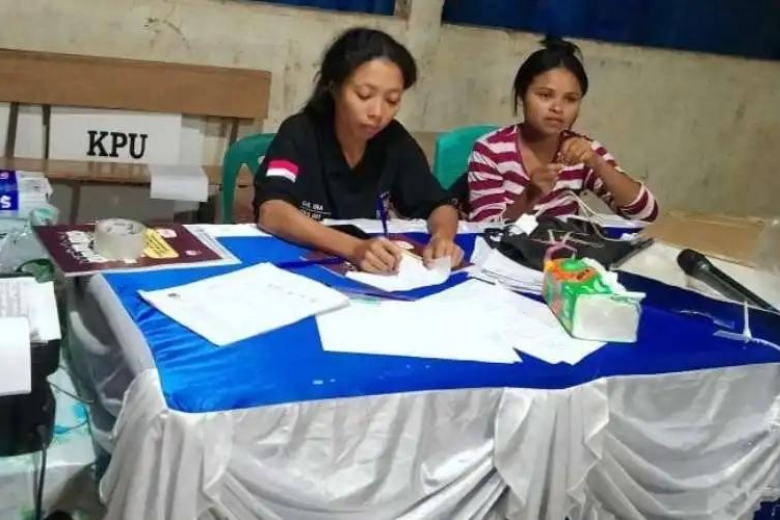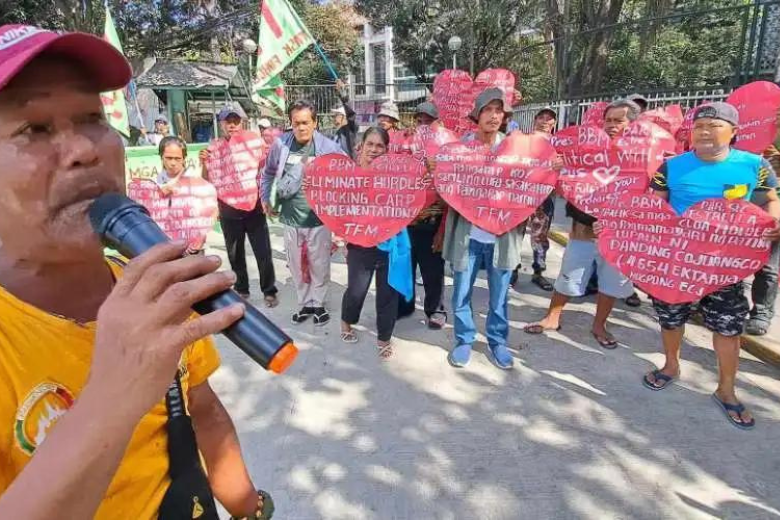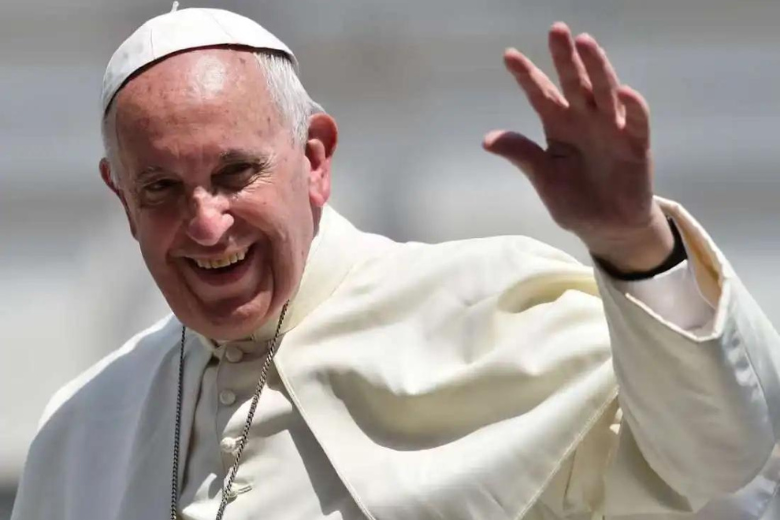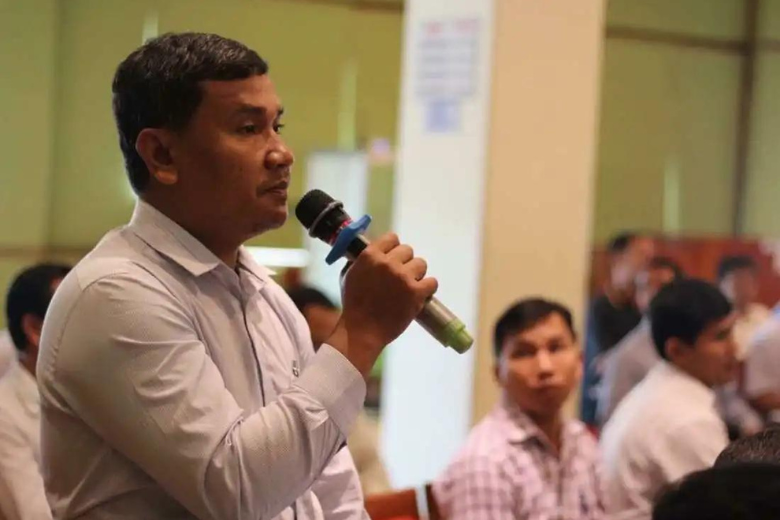UCA News Network :
A Catholic school in the northeast Indian state of Assam has sought police protection after it was threatened by Hindu extremists with dire consequences if Christian religious symbols from its premises were not removed within a week. A poster with the warning was found pasted on the wall of Carmel School in Jorhat run by Apostolic Carmel nuns.
Church-run institutions in Assam are credited for offering education to all communities, especially poor tribal people. Christian leaders say threats against the community from hardline groups increased alarmingly in the entire northeast region covering seven states.
Hardline groups have been pushing for Hindu-centric cultural nationalism for years.
In early February, a hardline group asked Christian schools to remove religious symbols such as photographs, portraits, or statues of Jesus and Mary from school premises within two weeks. It also asked Catholic priests, nuns, and religious brothers not to wear cassocks and habits in schools.
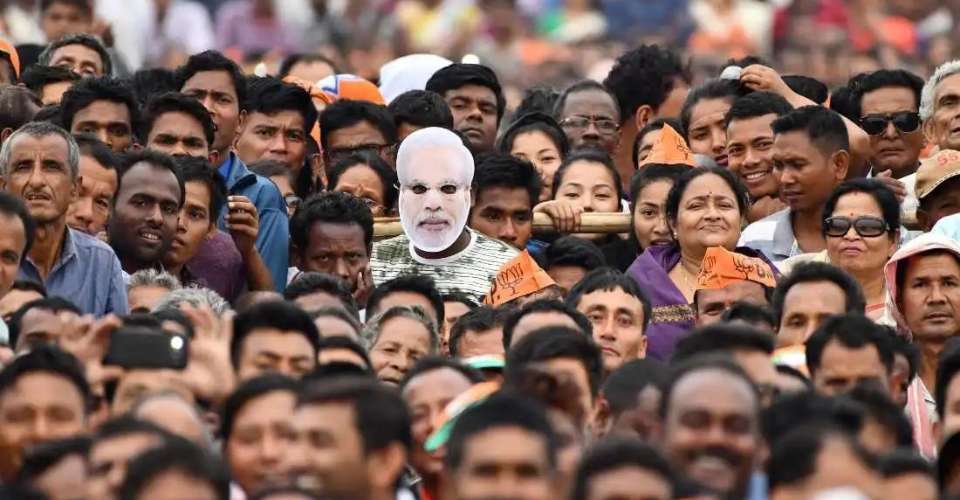 A supporter of India’s pro-Hindu Bharatiya Janata Party wears a mask of Prime Minister Narendra Modi at a political rally in northeast Assam state on March 30, 2019. Christian leaders say threats to Church-run institutions in the state are growing with Hindu groups pushing their brand of cultural nationalism. (Photo: AFP)
A supporter of India’s pro-Hindu Bharatiya Janata Party wears a mask of Prime Minister Narendra Modi at a political rally in northeast Assam state on March 30, 2019. Christian leaders say threats to Church-run institutions in the state are growing with Hindu groups pushing their brand of cultural nationalism. (Photo: AFP)
Rights group, Human Rights Focus Pakistan, has expressed concerns over the safety of a Christian man falsely accused of committing blasphemy. The group issued a statement on Tuesday demanding protection and justice for Younas Masih and his family.
68-year-old Masih was accused of blasphemy after allegedly defiling a Quran in the Khurrianwala area of Faisalabad in Punjab province on Feb. 10. The group investigated the case and found the accusation by a Muslim couple was fake. It stemmed from a personal grudge and dispute between the two families.
Christians protest in Karachi, in Pakistan on Aug. 19, 2023 three days after churches were attacked and vandalized by a Muslim mob in Jaranwala, in Punjab province. (Photo: AFP/Getty Images)
Masih was arrested after a case was filed, but he was later released after police found the charges baseless. However, a mob followed Masih to the police station and demonstrated outside it. He and his family went into hiding fearing mob attacks.
Blasphemy is a serious criminal offense in Pakistan that warrants life and death sentences. Rights groups say the controversial law is often exploited to target religious minorities including Christians.
Four top Buddhist prelates in Sri Lanka have criticized a government plan to sell key state-owned enterprises to foreign entities. They warned the move could trigger social, economic, and political instability in the island nation.
The government of President Ranil Wickremesinghe is aiming to raise 3 to 4 biillion US dollar via the sale of some state-owned enterprises to boost foreign reserves, accelerate economic growth, and address the ongoing economic crisis.
Ceylon Electricity Board trade union activists hold placards during a protest in Colombo on Nov. 1, 2023, to condemn a hike in electricity tariffs, taxes and moves to restructure the state-owned electricity utility. (Photo: AFP)
Opposition parties and trade unions have opposed the plan. In a letter to the president last Sunday, four chief Buddhist prelates warned that selling state institutions including Sri Lanka Telecom and the Ceylon Electricity Board under the guise of restructuring “could harm public welfare and national security.”
Rights activists called the proposed sell-off a “dangerous decision.” Sri Lanka is struggling to recover from the worst economic crisis in its history that triggered massive nationwide protests in 2022.
Church officials and activists in Indonesia called for changes in election rules as the election officials were not able to overcome fatigue following the recent general election. The Indonesian health ministry said 84 officials died while 4,567 persons needed medical treatment in eight days following the election held on a single day across the archipelago nation.
More than 200 million Indonesians flocked to polling stations to choose a new president and vice president, a parliament, and lawmakers among 20,000 administrative posts. More than 10,000 candidates from 18 parties contested in the 580-member national parliament.
Poll officers in East Nusa Tenggara province count votes after the Feb. 14 elections. (Photo: supplied)
Each voter had to cast five ballots to mark his choice. Reports say the polls were clubbed together to save the nation’s money.
Indonesia’s election norms require vote recapitulation to be completed within 12 hours after elections and can be extended for another 12 hours in case of emergency. Some 500 poll officials had died after the previous election held in 2019.
Catholic experts in South Korea called on the Catholic Church to consider the possibility of changing to a hybrid church that utilizes both online and offline services in a post-COVID situation.
The suggestion was made in a Pastoral White Paper of the Catholic Church in Korea by the Korean Catholic Pastoral Institute of the national bishops’ conference. The paper was published based on a survey, which aimed to understand the changes and perceptions among Catholics after the Covid-19 pandemic.
Pastors wearing face masks sit among empty benches during an online Christmas service at the Yoido Full Gospel Church in Seoul on Dec. 25, 2020, amid precautions due to the Covid-19 coronavirus. (Photo: AFP)
Several experts jointly wrote the white paper, each composing sections of it on religion, liturgy, theology, and pastoral care. South Korea had around 30.6 million Covid-19 cases and 34,093 deaths due to the virus.
Korean Church reported a significant drop in church attendance following the pandemic and a consequent decline in public participation in Church activities.
Philippine Catholic Church’s social service arm Caritas has expressed doubts over the land reform program of President Marcos administration that promises to redistribute private and public agricultural land to landless tillers.
Marcos pledged to implement the Comprehensive Agrarian Reform Program to redistribute agricultural land last year, but farmers continue to till their land as tenants, not as owners, said Caritas Philippines’ head of communication and partnership development Jing Rey Henderson.
Farmers protest outside the Department of Agrarian Reform office in Manila on Feb. 19. (Photo: Jimmy Domingo)
The remarks came as hundreds of landless farmers from Negros Occidental in the western Visayas region and Batangas in the southwestern part of northern Luzon Island have been protesting outside the Department of Agrarian Reform headquarters in the capital Manila since Monday.
The protesters demand the immediate distribution of agricultural land as promised by the president. Farmer groups say over 5,00,000 hectares of private agricultural land is to be distributed and a failure to do so would bar the nation from achieving food sufficiency.
Hong Kong government has slammed UK-based advocacy group Hong Kong Watch and dozens of other activist groups who expressed grave concerns that an impending new security law would bring “further devastating consequences” for human rights in the city.
In a statement on Tuesday, the Hong Kong administration said the groups had made “skewed remarks” that the authorities were undermining human rights with the upcoming enactment of legislation. The new, homegrown security law under Article 23 of the city’s mini constitution seeks to criminalize seven types of acts including treason and secession.
Men walk near a national security law poster in Hong Kong. (Photo: Government of Hong Kong via HKFP)
The joint statement said the proposed provisions in the legislation were vague and would result in criminalizing of free expression. The law is separate from the National Security Law imposed by Beijing in 2020 in response to a massive pro-democracy movement that erupted in 2019.
The law has been used to suppress all forms of dissent by arresting and jailing hundreds of pro-democracy protesters and supporters and effectively cut off a higher degree of autonomy, basic rights, and freedoms for Hong Kong.
The Vatican envoy in Timor Leste has lauded the “excellent preparation” by the government for a “possible” visit by Pope Francis in August.
Monsignor Marco Sprizzi, the charge d’affaires at the Apostolic Nunciature in Timor Leste, made the remarks while speaking to the reporters on the second week of February after a meeting with Timorese President José Ramos-Horta at the Presidential Palace in Dili. In the last week of January, a Vatican delegation visited Timor Leste to inspect the locations where Pope Francis is expected to visit and held meetings with Timorese authorities.
Pope Francis waves to people in this undated image. The pope is expected to visit Timor-Leste in August. (Photo: AFP)
Pope Francis will be the second pope to visit Timor Leste after Pope John Paul II who visited the country in 1989. About 97 percent of about 1.4 million Timorese people identify as Catholics and are spread into the Archdiocese of Dili, and the dioceses of Baucau and Maliana.
About 42 percent of people live in poverty amid a lack of education and employment despite the nation being rich in mineral resources like gas and oil.
Two global rights groups have called on the Cambodian government to dismiss a politically motivated defamation lawsuit against top human rights defender Soeng Senkaruna.
In a joint statement last Sunday, the Asian Forum for Human Rights and Development and CIVICUS said the complaint against Senkaruna was brought by Hun Sen, the former Cambodian prime minister and leader of the ruling CPP or Cambodian People’s Party.
Cambodian human rights activist Soeng Senkaruna speaks during a seminar in this undated image. Senkaruna is facing a defamation charge brought by former Cambodian prime minister Hun Sen. (Photo: FORUM-ASIA)
Hun Sen accused the activist of dishonoring the CPP following the publication of an article on the Cambodia Daily Khmer online news site.
The article quoted Senkaruna as saying that the CPP has often used the country’s judiciary to intimidate the opposition and that political disputes should be resolved politically rather than through courts.
Besides lengthy jail terms, state lawyers have also demanded about US$ 500,000 in compensation.
Rights groups say civic space shrank sharply in Cambodia under Hun Sen’s regime which deployed judicial harassment, threats, and online harassment against political opponents, non-governmental organizations, and dissenting voices.
This has continued under the rule of the current premier and Hun Sen’s son, Hun Manet.
Source : ucanews

